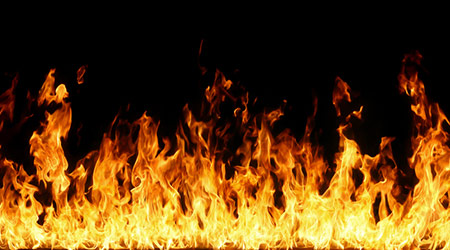After the 1949 St. Anthony Hospital fire, significant nationwide changes were made to fire safety at the medical institutions, according to an article on the Effingham Daily News website.
A 1944 inspection of the hospital, in Effingham Ill., found the facility to be compliant with all fire regulations and cleanliness requirements from the state. The report also said that the supervising nuns and housekeepers "took every step to prevent fires." FIve years later, a fire killed 77 people and lasted just under two hours.
According to the official fire marshal's report, the cause of the fire is undetermined and remains so to this day. Some local folklore suggests the fire was started by a local pyromaniac, a lit cigarette was thrown down a laundry chute, defects in wiring, paint fumes or unsafe storage of flammable liquids and gases.
With the fire marshal's investigation report came recommendations for preventing such a fire in the future, much of which is still implemented today and as since been modified to fit present-day technology and regulations.

 Healthcare and Resilience: A Pledge for Change
Healthcare and Resilience: A Pledge for Change Texas Health Resources Announces New Hospital for North McKinney
Texas Health Resources Announces New Hospital for North McKinney Cedar Point Health Falls Victim to Data Breach
Cedar Point Health Falls Victim to Data Breach Fire Protection in Healthcare: Why Active and Passive Systems Must Work as One
Fire Protection in Healthcare: Why Active and Passive Systems Must Work as One Cleveland Clinic Hits Key Milestones for Palm Beach County Expansion
Cleveland Clinic Hits Key Milestones for Palm Beach County Expansion